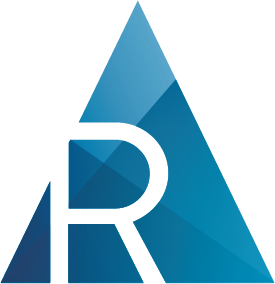Preparing for an Extended Lease Accounting Adoption Deadline
(**10/17 Update: The FASB voted on October 16, 2019 to approve this proposal)
The Financial Accounting Standards Board (FASB) voted last week to extend the deadline for private companies to adopt the new lease accounting standard (ASC 842). If approved, private companies will have until January 2021 to comply with changes to how they report their leased assets.
The FASB’s reason for the proposed extension is largely based on the adoption experiences of public companies. Many of these companies have found the process to be more time consuming and complex than initially expected. Data collection and abstraction, system selection and implementation, internal control design and assessment, and accounting policy development are just a few of the many challenges that management teams must tackle with the new lease accounting standard.
Private companies would be wise to not view the proposed extension as a reason to delay their pre-adoption activities. Rather, to ensure a successful transition, management teams should use this opportunity to critically assess their readiness to implement the new guidance.
Establish (or revisit) a robust adoption plan
Successful adoption begins with fully understanding the requirements of the new lease accounting rules and establishing an appropriate approach, timeline, and budget in light of the industry, nature of operations (e.g., decentralized versus centrally managed), and the volume of potential lease contracts. As part of a successful adoption, companies will also need to consider and plan for the ongoing effort to account for leases under the new rules going forward.
Identify, accumulate, and manage a complete population of lease contracts and related data
Identifying and gathering a complete population of potential lease contracts has proven to be a time-consuming effort for many companies. Collecting and validating the data needed to account for leases under the new standard is often one of the most challenging aspects of implementing the standard. Onerous clean-up tasks—including recording a large volume of adjustments needed to ensure accurate financial reporting—are now emerging for the many companies that did not run comprehensive pre-adoption checks and processes.
Assess the adoption team
Implementing the new standard can have wide-reaching impacts across an organization. Companies need to consider whether they have sufficient resources to effectively implement the new standard or if they will need to engage an advisor. Companies should identify the right people within the lease management cycle and include subject matter experts in operations, real estate, IT, tax, legal, FP&A, accounting, and financial reporting on the adoption team.
Consider technology solutions
Using spreadsheets carries inherent risks associated with data input errors, accidental changes, unintentional deletions, and the potential for incorrect formulas. In contrast, a lease accounting system can save companies valuable time and energy when it comes to data inputs and transforming existing processes. At the same time, companies need to be aware that these systems still require effort to ensure the software is configured to meet their needs, the data input has been validated and entered correctly, and an automated or manual process is designed to transfer the monthly journal entries from the lease accounting software to the general ledger.
Learn from public company adopters
Public companies have been reporting under the new standard since the beginning of 2019 and many have described the experience as being more difficult than anticipated. For example, companies will need to change accounting policies and consider whether to make a number of policy elections, including whether to use several transition practical expedients. Private companies can gather insights from public company filings, as well as the SEC comment letter process, which is a valuable source of information as private companies work through their own adoption plans.
Look at spend reduction opportunities
ASC 842 is not simply a compliance exercise. Rather, the adoption presents an opportunity to take advantage of hidden benefits such as vendor rationalization and spend reduction. Data that was previously decentralized and often undermanaged is now aggregated, normalized, and ready to be analyzed. Properly managing these assets can significantly increase a company’s value by helping to reduce lease spend.
As companies rush to comply with the new standard, establishing long-term processes can often take a backseat. With the deadline for adoption likely to extend another year, private companies now have additional time to ensure they are adequately prepared for Day One and subsequent post-adoption activities.


